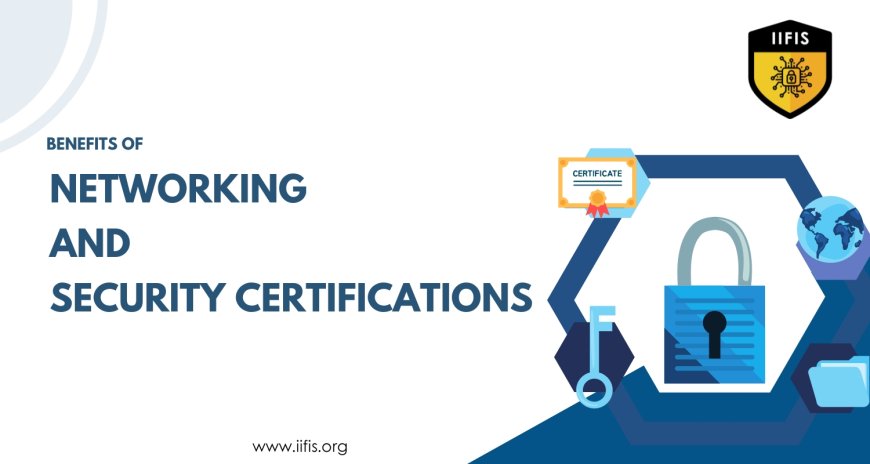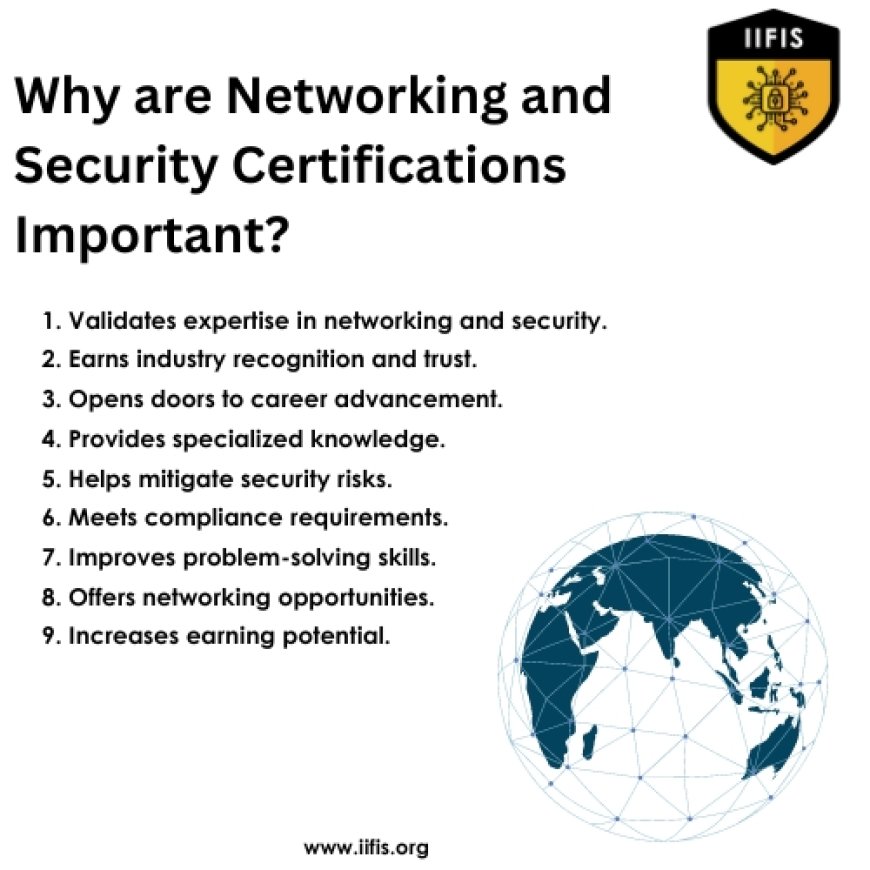Benefits of Networking and Security Certifications
Boost your career with Networking and Security Certifications. Enjoy more job opportunities, better pay, improved skills, and increased professional credibility.

Strong network and security measures are more important than ever. With cyber threats increasing, companies need experts who can protect their systems. Networking and Security Certifications help professionals prove they have the skills to keep these systems safe and stay ahead in their careers. These certifications cover many areas, such as network certification, Cyber Security Certifications, Information Security Certifications, and more specialized fields like Network Security Certification Programs and Application Security Certification. For software developers, security training is crucial. As software becomes more complex and interconnected, developers need to know the latest security practices to build software that can resist cyber-attacks.
These certifications not only boost individual careers but also strengthen organizational security. Employers prefer hiring certified professionals to reduce risks and improve their security. With certifications in information security and network certification, professionals can show they can protect sensitive data and maintain secure IT systems.
Networking and Security Certifications are essential in the modern IT world. They provide a clear path for professionals to learn and prove their skills, helping them stay up-to-date with new technologies. As the need for skilled security experts grows, these certifications will play a key role in creating a secure digital future. Whether you’re starting in IT or you’re an experienced developer, getting certified can greatly improve your career and help create a safer digital environment.
The Growing Demand for IT Professionals
The demand for IT professionals is rapidly increasing, especially for those with skills in networking and security certifications. Companies across different industries are looking for experts to help protect their digital assets. Cybersecurity has become a top priority, making it essential for software developers to receive security training. This ensures that applications are secure from the start.
The role of information security professionals is more crucial than ever. These experts are responsible for defending against cyber threats. Their skills, such as certified penetration testing, are in high demand. As cyber threats become more advanced, the need for certified cybersecurity managers and associates is also rising. These professionals create and manage security strategies and ensure that companies follow industry standards.
Certifications are key in this field, as they prove the skills and knowledge of IT professionals. Certifications like certified penetration testers and cybersecurity associates give job seekers a competitive advantage. The demand for certified cybersecurity managers highlights the need for leaders who can develop and oversee effective security measures. The growing need for IT professionals shows how important cybersecurity is today. As companies continue to focus on security, the demand for skilled individuals with specialized certifications will keep growing. This trend will shape the future of the IT industry.
Understanding the Challenges of Getting Networking and Security Certifications
In cybersecurity, people are always trying to stay ahead by getting certifications. But with so many options out there, it can be hard to figure out which ones are the best. Let's look at the problems you might face when trying to choose the right certifications.
1. Different Types: There are lots of different certifications, like ones for software developers or network security. Each one focuses on different parts of cybersecurity, so it's tough to know which one fits your goals and skills.
2. Prerequisites: Many certifications need you to meet certain requirements before you can even start. For example, to get a certified penetration tester (CPT) certification, you might need experience in cybersecurity or other basic certifications. This makes the whole process more complicated and needs careful planning.
3. Recognition: Some certifications are well-known and respected, but others might not be as valuable. It's hard to know which ones employers will care about and which ones they won't.
4. Keeping Up with Changes: Technology is always changing, so certifications need to keep updating to stay relevant. This makes things harder for both the people giving out certifications and the people trying to get them.
5. Cost and Time: Getting certified takes a lot of money and time. You have to pay for exams, study materials, and maybe even training courses. Plus, studying for exams while working a full-time job is tough.
How do Networking and Security Certifications help bridge the skills gap?
Networking and Security Certifications help fill in the gaps in skills. They teach people a lot about keeping computer networks safe from bad guys. These certifications show that someone knows their stuff when it comes to things like how to set up networks securely, how to keep information safe from hackers, and what to do if something goes wrong. When people get these certifications, it's like getting a stamp of approval that says they're good at what they do. Plus, the training they get is hands-on, so they learn by doing real tasks. Since companies care a lot about keeping their data safe nowadays, folks with Networking and Security Certifications are super wanted to help keep everything secure.

Networking and Security Certifications: A Path to Success in IT
In technology, getting certified in networking and security can help you out. These certifications aren't just pieces of paper—they're like golden tickets that can open up a ton of doors for your career. Let's break down why they're so great:
1. Career Advancement and Job Opportunities
Imagine having a badge that says you know your stuff when it comes to networks and keeping things secure. That's what these certifications do. They show employers that you're serious about your job and ready to take on bigger challenges. With these certifications under your belt, you'll be first in line for promotions and better job opportunities.
2. Higher Earning Potential
When you're certified, companies know they're getting quality. And they're willing to pay for it! People with certifications like CCIE or CEH can earn some serious cash. Plus, you might even get bonuses and perks on top of your salary.
3. Skill Enhancement and Knowledge Update
Studying for these certifications isn't just about passing a test. It's a chance to dive deep into the latest tech and tricks of the trade. That way, you'll always be up to speed on what's hot in the industry.
4. Increased Credibility and Recognition
Having these certifications is like having a stamp of approval from the big guns in IT. It shows everyone that you know your stuff, which can earn you respect and trust from bosses, clients, and coworkers.
5. Networking Opportunities
Joining certification communities is a great way to meet other pros like yourself. You can swap stories, learn from each other, and maybe even find your next big career move.
6. Enhanced Problem-Solving Skills
Certifications aren't just about memorizing facts. They often involve hands-on practice that hones your skills in fixing tricky problems—super useful in the fast-paced world of IT.
7. Access to Exclusive Resources
Certification bodies often hook you up with exclusive resources and tools. These can help you keep learning and stay ahead of the curve in your field.
Getting Networking and Security Certifications is beneficial. These certifications help you improve your job and prove that you're good at it, making you more trustworthy and attractive to employers. They open doors to well-paying jobs and promotions, giving you an advantage in the fast-changing tech world. Plus, they show that you're committed to learning and growing professionally, keeping you up-to-date with the latest trends and ways to keep networks safe. So, getting Networking and Security Certifications is smart if you want to succeed and stand out in the competitive IT world.























